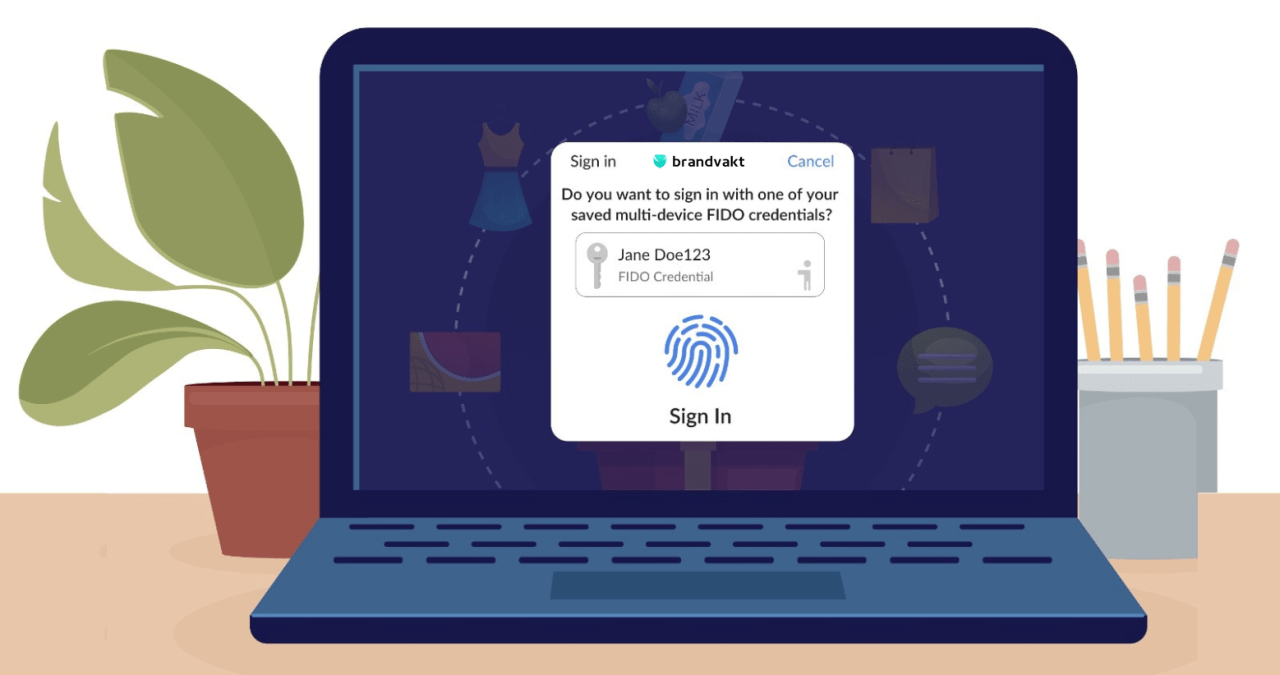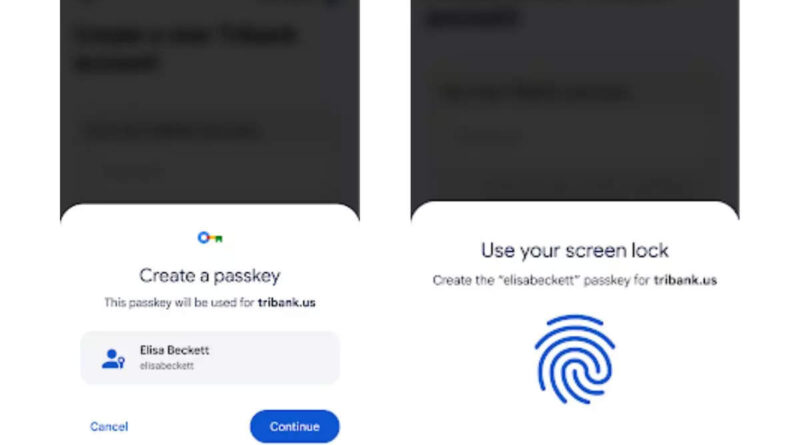Google Passkey Login Feature: Break Free From the Hassle of Passwords
Google Passkeys, which have been developed by tech giants such as Apple, Google, and Microsoft, are designed to be just as convenient as passwords, but with a higher level of security. Additionally, they are effective in preventing phishing attacks.
In a significant move towards promoting the use of passkeys, Google has now enabled users to log into their accounts using this authentication technology. This development marks a major step in addressing the numerous limitations of passwords.
Overview of Passkey Technology
Tech giants such as Apple, Microsoft, and Google, among others, have created passkeys that rely on a robust cryptographic security framework that ties your login credentials to your device. Unlike passwords, passkeys do not require you to memorize complicated strings of letters, numbers, and symbols. Typically, passkeys incorporate biometric authentication measures, such as fingerprint or facial recognition, although other alternatives are also available.

Although Google had previously integrated Google passkey functionality into its Android mobile operating system and Chrome web browser, it was not until the day before World Password Day that the company declared its users could employ Google passkeys to access Google sites. Currently, passkeys operate alongside other authentication methods, which means you can experiment with them without giving up your existing processes, such as passwords or hardware security keys.
Advantages of Google Passkeys Over Passwords
Assuming passkeys live up to their potential, they could become a highly secure and user-friendly alternative to passwords, ultimately leading to the complete elimination of passwords. Considering the vast number of individuals who rely on Google services, such as Gmail, YouTube, and Workspace, the introduction of passkey support on Google platforms marks a significant milestone for this technology.

In a blog post published on Wednesday, Christiaan Brand and Sriram Karra, both Google executives who led the Google passkey project, declared that passkeys signify the start of the end for passwords.
Passwords are ubiquitous, yet their effective use is challenging. We often choose predictable passwords that cybercriminals can effortlessly decipher. Additionally, we frequently recycle passwords across numerous applications and services, making it easier for hackers to launch “credential stuffing” attacks and gain entry into other accounts. Despite our attempts to improve password security by using two-factor authentication, such as receiving login codes via text message, this approach also has its issues.
You May Also Like: Motorola Has Released 3 News Phone Models This Year (2023)
Passkeys aim to circumvent these issues by relying on cryptographic protocols that secure e-commerce transactions and network communications. The Fast Identity Online Alliance (FIDO) has repurposed these protocols for authentication. Although the FIDO Alliance initially focused on hardware security keys, which is presently the most robust authentication technology available, it rebranded these keys as passkeys to make them more user-friendly and affordable.
Although passkeys are a recent development, several websites have already implemented this technology for login purposes, surpassing Google in this regard. Some of the companies that offer passkey login include eBay, DocuSign, PayPal, and Shopify.
Similar to hardware security keys, passkey login credentials are established to function with a particular website or app’s service. The actual authentication process is then executed locally on the device’s hardware, either a phone or computer. This strategy circumvents one of the most significant current security threats, which is phishing attempts that coerce individuals into disclosing their login credentials or other confidential information to fraudulent websites.
It’s possible to configure passkeys on multiple devices. Additionally, if you’re logging in temporarily on a public device, such as a friend’s phone or a library computer, Google provides a QR code scanning feature that allows you to sign in briefly without permanently storing your passkey.
At present, one challenge associated with passkeys is that they are anchored to specific technology ecosystems, mainly those developed by Apple and Google. For instance, when you create a passkey for Google on an Android device, Google will automatically generate passkeys for other Android devices, but not for your iPhone.
Recommended For You: Is it Necessary To Move Toward Samsung Galaxy S23 Ultra?
Currently, password manager manufacturers, such as Bitwarden, LastPass, Dashlane, and 1Password, are actively engaged in the FIDO Alliance to develop technology that allows users to import and export passkeys. The simplicity of this process is unclear, though, and while Google has expressed its support for the idea, Apple has remained silent.
1Password CEO Jeff Shiner released a statement on Wednesday: “With Google’s implementation of Google passkey support, 1.5 billion individuals across the globe can now use passkeys. However, for it to be commonly embraced, users must have the freedom to choose when and where they want to utilize Google passkeys, enabling them to easily move between ecosystems.
On Wednesday, Dashlane, a password manager, incorporated a new feature that enables users to log in with a passkey instead of a master password. Dashlane already has the capability to store passkeys.
According to Dashlane, passkeys are easier to use and more secure than traditional passwords, and can even replace the need for a master password. By enabling users to create passwordless accounts that are resistant to phishing attacks, Dashlane hopes to eliminate the vulnerabilities associated with traditional passwords and multifactor authentication.


